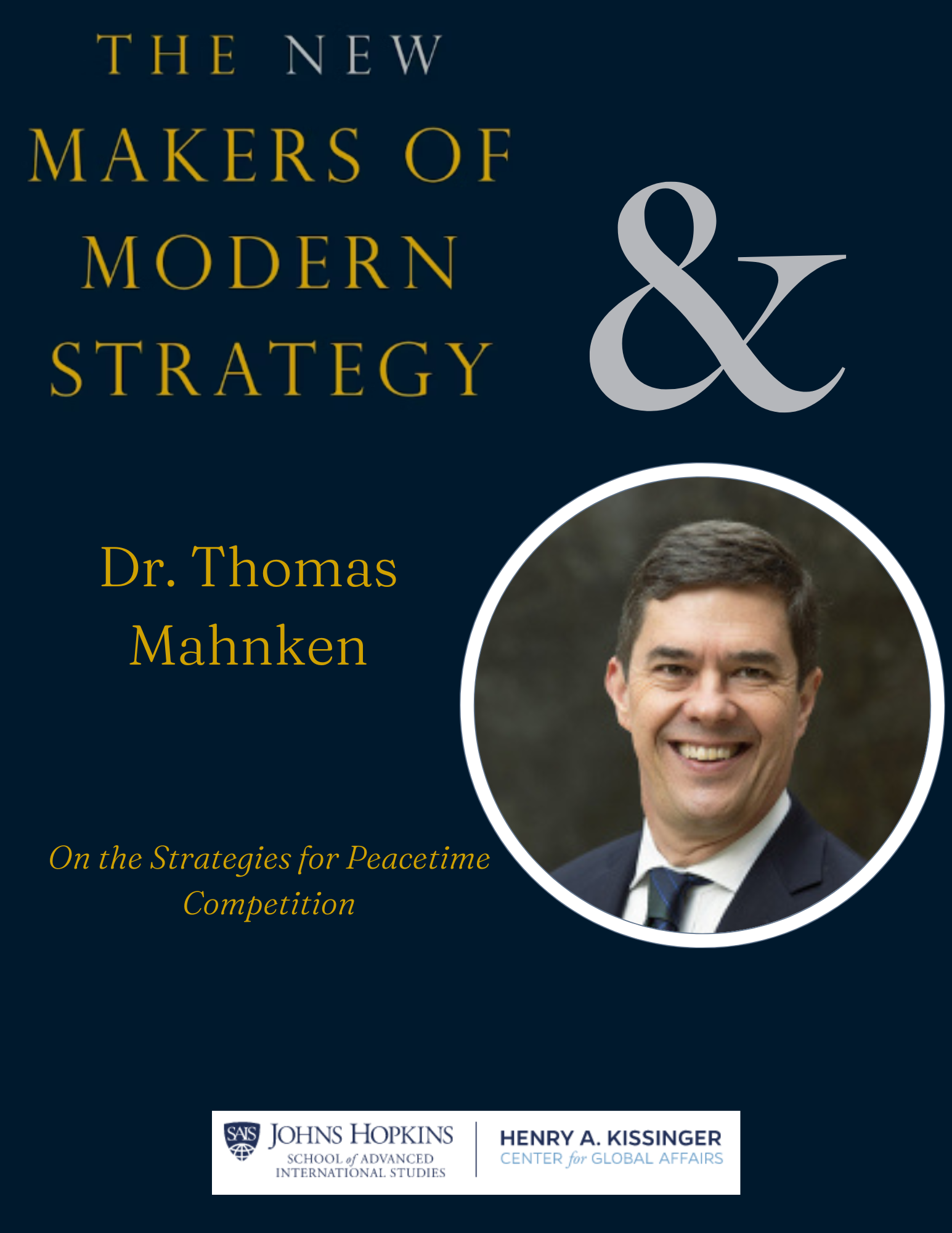New Makers of Modern Strategy Contributor Spotlight: Dr. Thomas Mahnken

What inspired you to contribute to the Makers of Modern Strategy series, and what do you hope to achieve with your chapter in this volume?
I read the first edition of Makers of Modern Strategy as a college student, and it kindled a love of strategic studies that has guided me throughout my career. I read the second edition in graduate school and subsequently assigned it to students at the U.S. Naval War College and SAIS. It was thus an honor to be able to contribute to the third edition of Makers in the hope that the volume will inspire future generations of scholars and practitioners the way that the first two editions inspired me.
Can you describe some of the key thinkers and historical events that you discuss in your chapter, and what role did they play in shaping the field of strategy?
The key makers of modern strategy who appear in my chapter are Admiral Sir John (“Jackie”) Fisher, who developed a successful strategy for the Anglo-German naval competition at the dawn of the twentieth century; Thomas Schelling, one of the key early theorists of arms control; Andrew W. Marshall, who developed an understanding of long-term peacetime competition as an analyst at the RAND Corporation and helped implement it as the founding Director of the Office of Net Assessment in the Pentagon; and President Ronald Reagan, whose administration developed and implemented a successful strategy for competing against the Soviet Union that ended the Cold War on terms favorable to the United States.
How does your chapter connect with previous volumes in the series, and what are some of the new perspectives and approaches that you bring to the study of strategy?
My chapter’s focus on strategies for peacetime competition offers a new perspective compared to the first two editions of Makers.
What do you believe are the implications of your research for practitioners and policymakers, and what impact do you hope your chapter will have on the field of strategy?
Given that we are today in a period of competition between the United States, on the one hand, and China and Russia, on the other, scholars and practitioners alike should be interest in the topic.